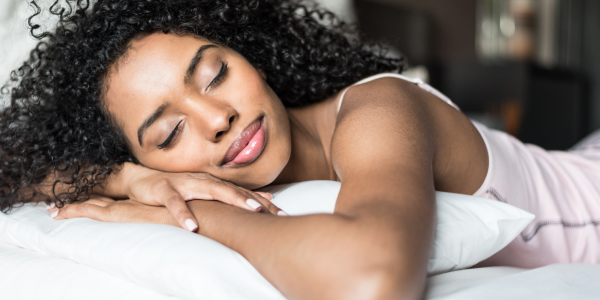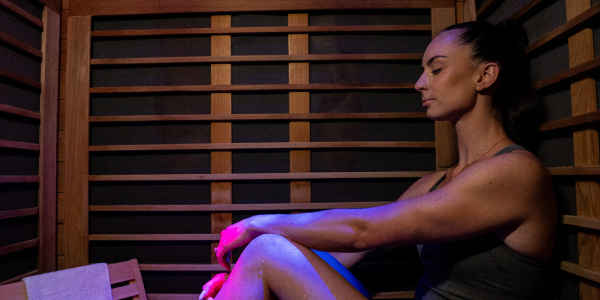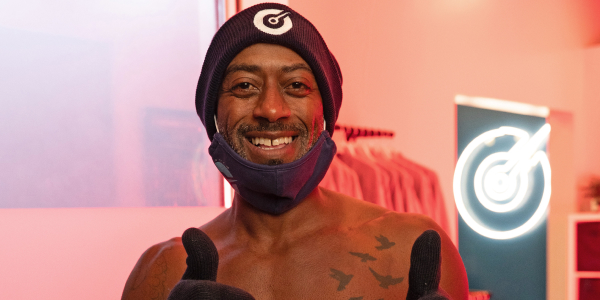Understanding Mental Health
Mental health affects everything from the thoughts we have and choices we make to how we react to stress and other people. Most people deal with mental health concerns at some point in their life, but when those concerns become ongoing, the symptoms can affect your ability to function.
These symptoms may evolve into a mental illness like depression or anxiety, and it’s likely more common than you think. One in five U.S. adults experience mental illness each year, and adults between the ages of 35 and 44 showed the highest increase in reporting a mental health diagnosis—45% in 2023 which is up from 31% in 2019. Depression is the leading cause of disability in the world, and mental health and well-being are more than just feeling happy. This critical aspect of your health includes your emotional, psychological and social aspects of well-being. These are critical pieces to the quality of your life.
Our experts put together this article to help you better understand the importance of supporting your mental health, along with healthy lifestyle practices and science-backed therapies to help manage some debilitating symptoms of stress and anxiety.
Breaking the Mental Health Stigma
Despite how common mental health issues are, there is often still an unfair stigma around mental health that prevents more than 40% of people with anxiety or depression from seeking help. One of those stigmas is often that mental health is a “choice” or weakness, but there are many factors that can influence a person’s mental health and well-being, from genetics and brain chemistry to external risk factors such as life-changing events and trauma.
It’s important to talk about your own mental health and it's important to try to support others' mental well-being. Mental health touches every part of our lives—from work to family and friends to how we handle day-to-day tasks.
Healthy Lifestyle Habits
While there’s no one-size-fits-all approach to improving mental health, there are a variety of healthy lifestyle choices that can help.
Stay Active
Along with the well-known physical benefits of exercise, staying active can reduce symptoms of anxiety and depression and improve mood, self-esteem, and even cognitive function. The Department of Health and Human Services recommends getting at least 150 minutes of moderate aerobic activity or 75 minutes of vigorous aerobic activity a week—---or a combination of moderate and vigorous activity.
Get Quality Sleep
Sleep plays an essential role in everything from cognitive function and energy levels to the ability to handle stress and daily activities.
Insufficient sleep has been linked to a decrease in mental and emotional health, affecting how people regulate stress and emotion in their everyday lives. It’s recommended that adults aim for between seven and nine hours of sleep per night, and establish healthy sleep habits.
Stay Social
It’s human nature to want to have connections with other people, but it turns out that those connections also have a significant impact on health and well-being. Social support can help maintain a healthy weight and control blood sugars, increase survival rates of some cancers and cardiovascular issues, decrease depressive and posttraumatic stress symptoms, and improve overall mental health. On the other hand, social isolation can increase the risk of not just mental health issues, but also physical diseases like heart disease, strokes, and even premature death.
What are the Best Ways to Make Adult Friendships?
Join a gym, a fitness or hobby group from Facebook or start a book club on a site like MeetUp, and start talking to people with similar interests.
Practice Gratitude
A simple way to acknowledge the good in your life and stay positive is to journal about what you’re grateful for every day. When you’re feeling depressed, anxious, or stressed, the act of journaling can help you shift your focus from negative feelings to positive ones, decreasing mental distress and even the risk of some cardiovascular diseases, while increasing overall emotional well-being.
Practicing gratitude doesn’t have to be a long, arduous process. A gratitude practice can be as simple as making a list on your phone or taking 10 minutes at the end of the day to recall three things that made you happy.
Science-Backed Therapies
With 225+ studio locations nationwide, you can easily book some self-care using one of these therapies at Restore to help improve mental health and promote relaxation.
Infrared Sauna
During an Infrared Sauna session, infrared light waves and ambient temperatures penetrate your skin and tissues to help you sweat, which can release toxins from the body.
Due to the gentle heat, sitting and sweating in an Infrared Sauna can feel like a form of meditation. A global study shared that the most cited reason to use a sauna was for relaxation and stress reduction, and sauna users demonstrated higher mental well-being scores compared to those who didn’t use it as a form of therapy.
Infrared Sauna takes approximately 30-45 minutes, and you connect your phone to Bluetooth to listen to a podcast or music.
Mild Hyperbaric Oxygen Therapy (mHbOT)
Did you know that the air we breathe is only 21% oxygen? During a Mild Hyperbaric Oxygen Therapy (mHbOT) appointment, enhanced oxygen is supplied to the brain, which has been shown to improve cognitive function, ease depression and anxiety symptoms, and improve attention and the speed at which information is processed.
mHbOT sessions typically take 60-90 minutes to allow the chamber to fully pressurize and depressurize, and many clients enjoy disconnecting from their phones and reading while inside.
Whole Body Cryotherapy
Your entire body is safely exposed to sub-zero temperatures for two to three minutes during Cryotherapy. The extreme cold activates your body’s natural fight or flight response and increases levels of oxygen, adrenaline, noradrenaline and endorphins---which can have a positive on people with depression and anxiety.
Additional studies have also reported that Cryotherapy reduces mental health deterioration and can provide a quick antidepressant effect.
Ask your Restore Wellness Rep about their favorite Cryotherapy song! We want you to feel comfortable and pumped during your session.
IV Drip Therapy
Stress is a significant contributor to the quality of your mental health, and one way to help reduce stress is to incorporate IV Drip Therapy with our extensive menu.
Here are some IV Drip ingredients that can help reduce stress:
- Magnesium: can help promote relaxation and reduce anxiety.
- Vitamin C: can help combat oxidative stress to reduce cell and tissue damage. This antioxidant supports adrenal function, which helps regulate your metabolism, immune system, blood pressure, response to stress and other essential functions.
- Glutathione: is a powerful antioxidant that can help reduce oxidative stress, detoxify, and slow the progression of psychiatric disorders.
Start Today
Your mental well-being is important. Whether you struggle with stress, anxiety and depression daily or you want to take a proactive approach to help your body better manage the normal stressors of life, our science-backed therapies can help. Book your appointments today.
IV Drip and IM Shot menus and ingredients vary by location. Find your nearest studio to learn more. Medical services are provided by an independently-owned physician practice. Some services may require medical clearance and a prescription. We reserve the right to refuse service to anyone. Services, therapies, ingredients and prices may vary per location. The content on our site, blog posts, educational materials, app, promotional newsletters, and any other written content are not intended to replace an evaluation with a qualified healthcare professional and are not intended as medical advice.






